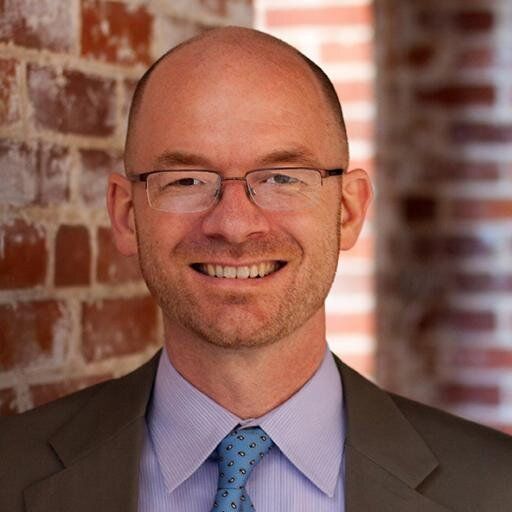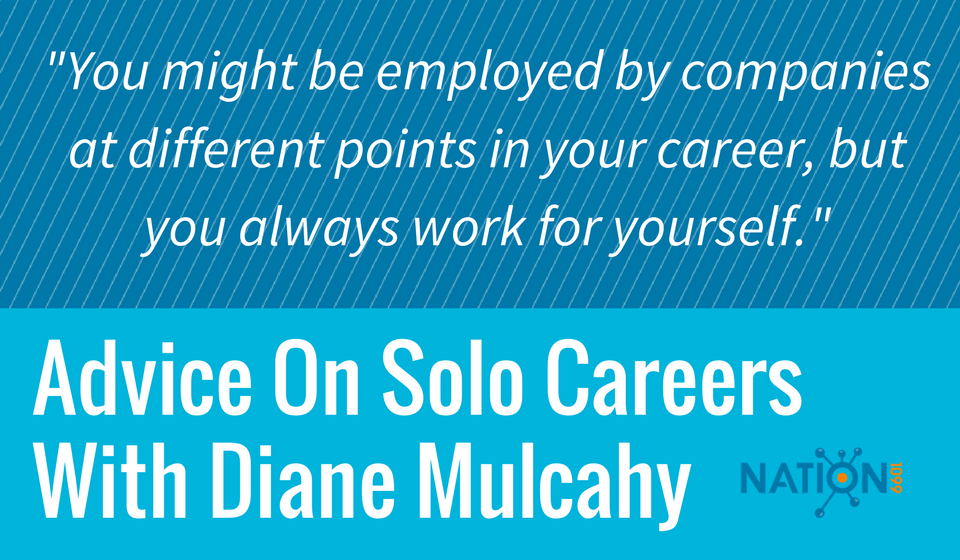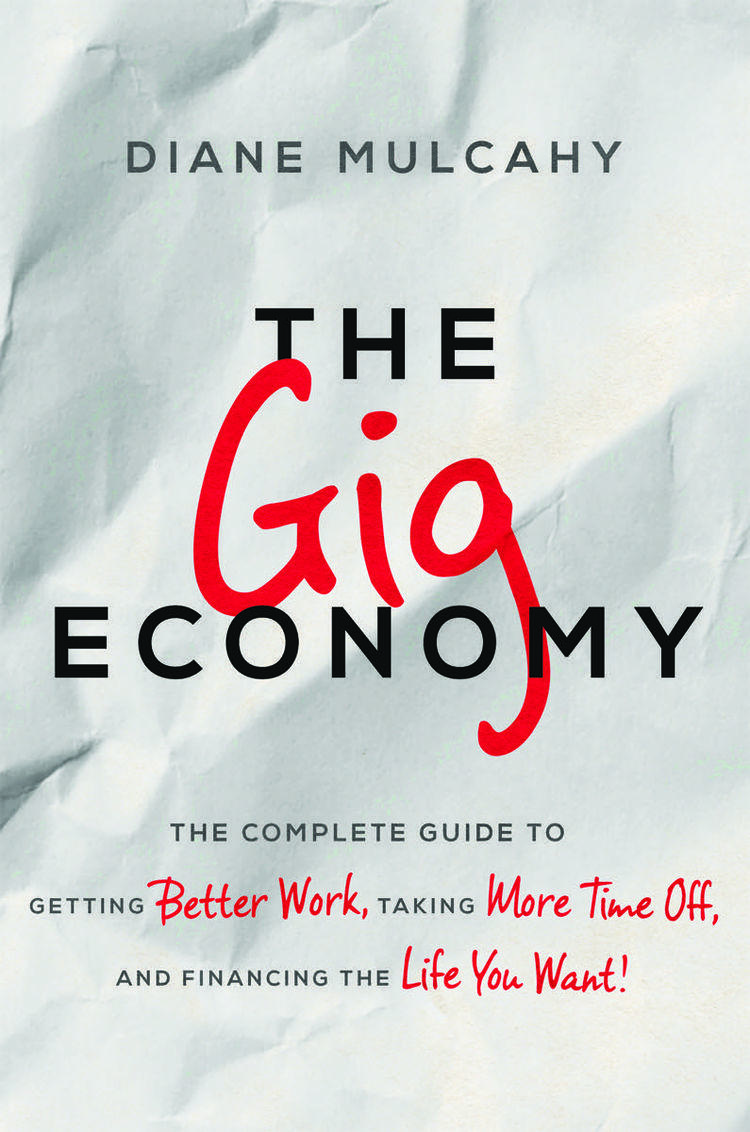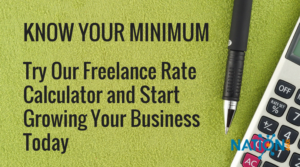As we’ve noted before, more than 11 percent of the U.S. workforce is full-time freelance. So as more people build careers based on independent work, then the places where career development normally gets the most attention — colleges and universities — will begin to respond, right?

We are starting to see a few instances of that (check out our gig economy news digest), but an early pioneer in educating people for independent work is Diane Mulcahy who developed an MBA course for budding freelance professionals at Babson College over five years ago.
Diane’s experience working with students in her course, titled Entrepreneurship and the Gig Economy, led to her 2016 book The Gig Economy, which is packed with practical advice on building a solo career.
Diane is herself an independent worker — more on defining that term below — who, in addition to teaching at Babson, is an investor, speaker and consultant working in financial services, private equity and venture capital.
Diane spoke with me about the gig economy trends she is observing since her book came out and what concerns and interests she hears about from MBA students who are considering independent work. This is lightly edited for readability.
Related reading: Semi-retirement Jobs In the Gig Economy: Interview With Career Expert Nancy Collamer
How did you first get interested in the gig economy?
The sparkle in the eye of this started when I got my first job out of college and I worked for a consulting firm.
The advice at the time was that to figure out what you want to do with your future look around you and decide whose job you want. I looked around and I didn’t want anybody’s job.
I just had in mind that my ideal working life was much more varied. I had an early sense that I wanted a portfolio of work where I could control the work I did and where I could control when and where I did it.
That was an ideal. As a new graduate, you don’t have a lot of leverage or skills. But over the course of my career, that’s the kind of work life I have to developed.
I read an article that used the term the “gig economy,” and I had one of those goosebumps-on-the-arms moments. That’s the name of the thing that I have been ruminating on for all these years. I put together a syllabus within a week of reading that.
Were you a W-2 employee all that time?
At the start, I had a very traditional career. I haven’t worked in an office in about a decade, and I’ve been independent for about half a decade.
How do you define your career?
If somebody asks me what I do, I answer by saying that I work independently and that I’m a writer, a teacher and an investor.
The other thing I say is that I do a portfolio of things. I lay out the structure up front and name the things that I do.
Why is the MBA course called Entrepreneurship and the Gig Economy?
Babson is known for its focus on entrepreneurship. I’m trying to prepare graduates to work independently, and that means you are an entrepreneur. You’re running your own business. I see the ideas as very tied together.
I started teaching this class six years ago. This was way before the gig economy was a thing. I taught it very much like a business school class. I covered the economic trends. I looked at the impact on traditional companies. I looked at business models of companies that were emerging to support people who work this way.
But what I found over time is that students really wanted to talk about how they were going to succeed in this new way of working. So my course has evolved. A lot of the topics are more personal.
I now cover topics like how you define what your version of success looks like. How do you structure a professional life that allows you to achieve that version of success? How do you think about things like personal branding and identity? How you structure your financial life differently if you work independently? What does financial stability look like in that scenario?
What do you mean by entrepreneurship?
When I talk about entrepreneurship to MBA students, I mean it holistically.
You might be employed by companies at different points in your career, but you always work for yourself. Think about yourself as a business that you’re managing over the course of your career.
You are managing the business of you. Whether you are working for a company or working independently at the moment, you are running your own business. You’re managing your own brand and career progression.
Related reading: Dorie Clark On Thriving As a Consultant
How much do you talk about strategic planning for independent work?
I take a more bottom up approach, helping students identify the interests and expertise to do what they like to do. Then, given their vision of success, what business opportunities arise from that?
For some students, that means figuring out their niche as a consultant. What’s their unique advantage?
But I always emphasize having multiple clients, multiple streams of income, multiple areas of interest. Diversification is key when you’re an independent worker.
What personal considerations do students bring to the course?
These are students who have taken the traditional path. A lot of them are working for Fortune 500 companies or venture backed startups. They have careers that are on a very promising trajectory. They are models of the traditional path to success.
When they come to class, doing the exercises I assign is the first time in most cases that they’ve sat down and reflected on if this what they really want. “I’m defaulting into all these things, but is this really the lifestyle I want to build? Is this really the lifestyle I want to buy.”
What do you mean “buy a lifestyle?”
We all choose a lifestyle we’re interested in and then we have to generate the revenues to pay for that. Many students are living a lifestyle they don’t want to be buying. That’s a revelation.
I have students who make amazing transformations. I’ve had students drop out of the MBA program. I’ve had them drop out of campus recruiting. I’ve had them quit jobs, move to the city, sell their house.
All kinds of changes occur once they do the work and figure out, “Actually, you know, I don’t care about having a really nice car. I’d be happier without a car and living in the city.”
It takes sitting down and explicitly considering these choices to recognize that the default path might not be for them.
Presumably if you step off the default path for independent work you are forgoing significant income. What do you advise students about that?
It’s sometimes true, especially in the beginning. If you’re transitioning from a Fortune 500 company and going out on your own, there’s going to be a startup period where you might be making less money. I make the analogy that it’s not dissimilar to going to work for a startup. If you’re interested in entrepreneurship and you go to work for a high-growth startup, you are likely going to take a pay cut to do that.
On the other hand, for students who feel like that is something they can handle, I suggest that while they are working to start something on the side and go through that startup period while they’re working their full-time job. Make sure there is demand for the product or service they are offering. Make sure to understand the pricing and that you can actually make a living by pursuing that line of business.
Related reading: Demystifying Consultant Pricing Models
In my experience, a lot of what you earn in a job is spent just on sustaining life as someone who works in a job. When you stop going to the office every day, you just need a lot less money.
I heard that repeatedly in interviews I did for my book. They said, “My lifestyle has really changed. I don’t have to invest in a bunch of clothes to go to the office. I don’t have to commute. I might not have to own a car. I don’t have feel like I have to treat myself all the time or feel like I have to take the same kinds of vacations, because my day-to-day life is so much higher quality.”
Also income doesn’t always decline as you might think. It’s possible to make a good living as a freelancer or consultant.
It absolutely is. When you’re charging for your time and you don’t have to give a piece of that to anyone else, you can make much more. How it works out really depends on the individual circumstances, but you certainly can make more money. Equally, you can make less.
What trends are noticing since your book was published?
The trends I saw while I was writing — which is that the gig economy is growing quickly and that there’s no sign of it reversing — are still absolutely true. This really does represent a vision of the future of work. Those trends have been consistently true across time.
I’m seeing a little more interest in policy responses to the gig economy, but it’s very slow.
Similarly, I am seeing companies respond to this but much more slowly than the evidence suggests would be rational given how quickly this part of the workforce is growing.
Many companies are still very resistant to moving on from five-days-a-week, eight-hours-a-day, in the office, manage by time and place. Even though they need specific skills and expertise it might be difficult to find locally, they are reluctant to think about independent workers.
One of the fastest growing segments of the gig economy is people making $100,000 or more per year. If you think about it, that makes complete sense. It’s people who want the ability to control their work and who they work for. They want autonomy. They want flexibility. They want to choose the kind of work they do. And who’s choosing that? People with the most leverage, who have the most experience and skills.
When I talk to H.R., they really haven’t internalized that as a trend. They’re not responding to it in a comprehensive, strategic way.
How are startups responding to this new freelance workforce?
I see a lot of technology startups emerging that are attempting to figure out ways to support independent workers, whether it’s back office or its access to different services. Certainly platform companies are very interested in figuring out “How can I offer my independent workers on my platform attractive pricing?”
Think about Stride Health, which is a venture-backed startup that makes it easy for people to put together some health benefits. They have relationships with Uber and Etsy and number of platforms. There are a bunch of insuretech companies emerging.
Intuit now has a whole suite called Intuit self-employed to help people with the back office and their taxes.
What do you mean by the gig economy?
I define it very broadly, which is, if you’re not a full-time employee in a full-time job. I include consultants, independent contractors, advisors, freelancers, on-demand workers, part-time workers.
They’re all facing the same kinds of issues. So it makes sense to put them all together in one category. What I find myself explaining the most is that the gig economy does not equal Uber drivers.

Robert McGuire
Publisher of Nation1099
Robert McGuire is the owner of McGuire Editorial, a content marketing services firm specializing in B2B and tech startups.











